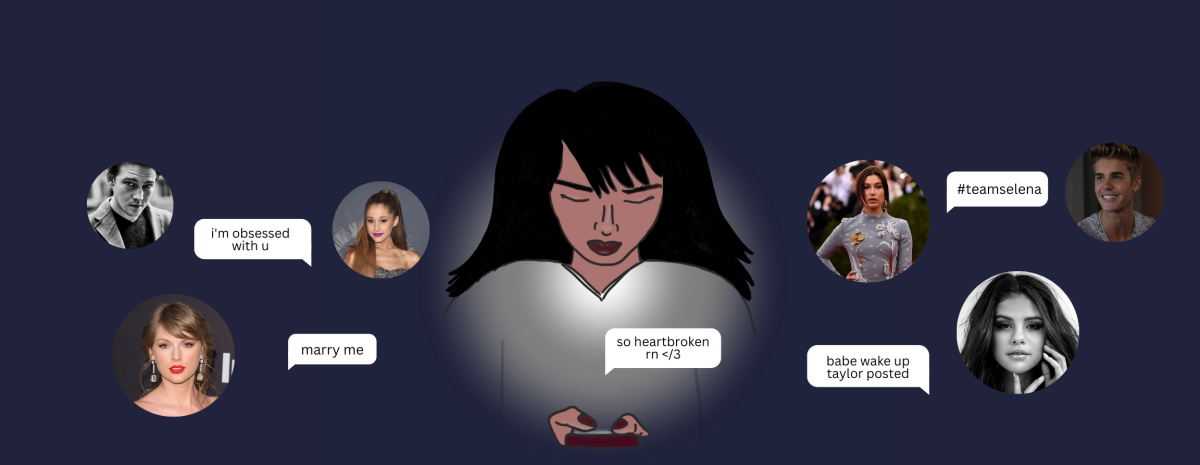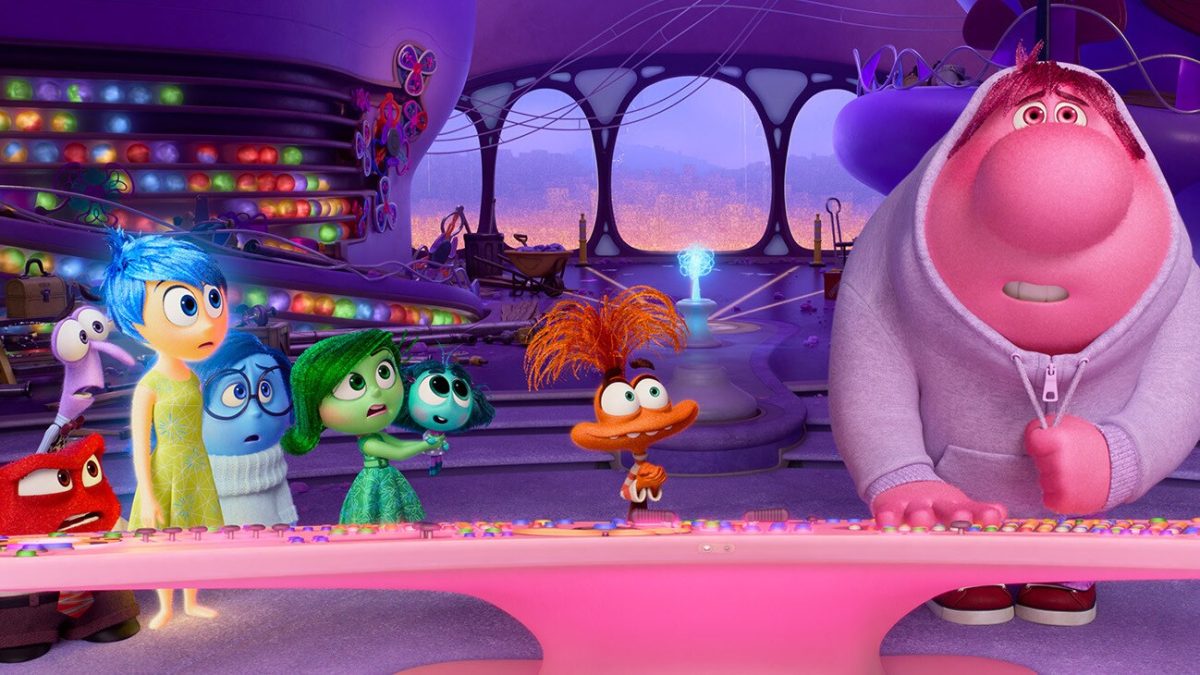There are some events that are so monumental, so life-changing, that for the rest of your days you’ll remember what you were doing when you heard the news. For example, I’ll never forget doing my math homework at my desk on the morning of April 8, thinking that I should really try using a vacuum one of these days, when I received an Apple News notification that Taylor Swift and Joe Alwyn had allegedly broken up.
I wondered why I — along with millions of fans online — was sad. For years, I had scorned mega-fans of celebrities ranging from Justin Bieber to Ariana Grande, who insisted that singers, actors, or influencers were pure, evil, or anywhere in between. Of course, we don’t know these people personally — almost everything they share with the world is curated.
Feeling this way is one of the markers of a parasocial relationship, which the National Institutes of Health define as a “nonreciprocal socio-emotional connections with media figures such as celebrities or influencers.” To be sure, Swift’s music, which is heavily influenced by her life, creates a — perhaps unwarranted — sense of personal understanding amongst listeners.
However, being attached to your idols isn’t necessarily bad — or even abnormal. As human beings, empathy for another, especially someone whom we analogize with ourselves, is simply natural. Additionally, parasocial relationships can fulfill us in ways that may not be achievable in real life; a 2017 study from the journal Developmental Psychology found that young girls sought friendship in admired celebrities, while boys found role models and aspirational figures.
The journal Current Opinion in Psychology’s June 2022 edition found that parasocial behavior can actually be beneficial. Not only do viewers adopt healthy habits promoted by their favorite celebrity, but they can also gain a sense of companionship by being part of a fandom. For those who are bullied or ostracized in their real lives, online communities can provide vital outlets and support. Additionally, media figures often provide inspiration for self-development.
As long as admiration and empathy for one’s favorite pop star or soccer player is all that you feel, parasocial relationships can be perfectly healthy. On occasion, however, such relations can develop into unhealthy obsessions that impact both fans’ mental health as well as celebrities. A disturbingly common phenomenon is when fans stalk the social media accounts of those they consider the “enemies” of their favorite celebrities.
For example, a feud between singer Selena Gomez and model Hailey Bieber has recently been generating headlines, with thousands of posts and videos proliferating online with “evidence” of one supposedly bullying or being rude to the other. These acquire hundreds of comments that feed into the discourse, with several on the Instagram pages of each celebrity.
This is an example of negative community-building, classified by a strong sense of loyalty towards the “in-group” and hatred towards the “out-group.” Other negative impacts include engaging in risky behavior that is promoted by a celebrity, as well as body image issues and depression. It can also contribute to withdrawals from real life and more attention to online communities, which may increase ostracization.
Other, and more controversial, examples of intense fandoms include the Beyhive, Directioners, and fans of K-pop. However, almost every celebrity, no matter how unworthy of glorification they may seem, has interesting stories to tell. For example, Jared Leto of “Morbius” fame was once sent a severed ear by a fan, alongside the note “are you listening?” Leto then proceeded to wear the ear around his neck.
I find Swift’s — and all musicians’ — cases unique from other celebrities, because a primary reason for their connection with fans is because of their direct communication through the lyrics. Swift’s lyrics are often very personal; something that drew me to her music is her ability to hone in on specific details from her own experiences while capturing universal feelings.
In this case, a parasocial relationship can be a form of positive connection — specifically, music allows a listener to feel understood while connecting with other listeners to find community. Fans often comment that going to Swift’s concerts feels like attending a sleepover; this is due to both the sense of community amongst listeners and her own tendency to reciprocate their affection by dropping hints and Easter eggs.
In short, I don’t feel that it’s unhealthy to be personally attached to an artist or celebrity, and it can improve your life in several ways! In the same way that we’re fond of our favorite book or television characters, we can enjoy what celebrities offer us — parts of their life — while remaining cognizant that the relationship is one-way and that it’s important not to invest too much time and energy into what is ultimately not a mutual bond.
Additionally, on the other side of the debate, remembering that celebrities are human as well is just as crucial. Idolizing or villainizing them is incorrect, and it’s important to remember that they don’t have all the answers to your problems. Therefore, for the time that you spend interacting with a celebrity, try to spend a similar duration in your real-life relationships and participating in other activities that you enjoy.































